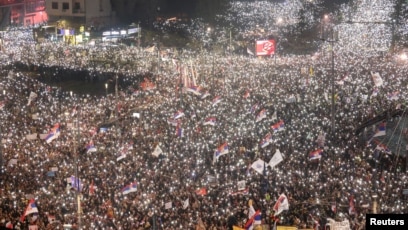
In a draft resolution on Serbia, Members of the European Parliament (MEPs) support the right of students and citizens to peaceful protest and strongly condemn the wave of violence, intimidation, and indiscriminate arrests sponsored by the state.
The document, published on the European Parliament’s website, holds the Serbian leadership politically responsible for escalating repression, normalizing violence, and weakening democratic institutions in the country.
MEPs will debate the resolution on Serbia at their meeting on October 21.
The resolution focuses on the situation in Serbia one year after the accident on November 1, 2024, when the roof of the Novi Sad railway station collapsed, killing 16 people and seriously injuring one. The collapse of the canopy sparked a wave of mass anti-government protests demanding accountability, while government officials deny responsibility for the accident.
The agreed text of the European Parliament resolution “On polarization and increased repression in Serbia, one year after the tragedy in Novi Sad” reiterates the demand for a full and transparent investigation and judicial proceedings to bring those responsible for the collapse of the canopy to justice.
The Russian Federation’s open interference in the protests in Serbia has been condemned with disinformation from Russian officials, including Vladimir Putin, who speak of a “color revolution” supported by the West.
Serbian authorities are called upon to “take measures against such malignant propaganda in the domestic media, rather than participating in its dissemination.”
In the resolution, MEPs support the deployment of an ad hoc mission to assess the state of democracy, in which the European Parliament would also participate.
The European Commission is called upon to launch an initiative for targeted individual sanctions against those responsible for serious violations of the law and human rights in Serbia.
Increased Chinese influence, projects outside tenders
The text states that China’s presence and influence in Serbia has increased significantly in recent years due to large investments in infrastructure, “raising concerns about transparency, compliance with EU standards and environmental regulations.”
It notes that the Novi Sad railway station renovation project was carried out by two Chinese companies outside the usual public procurement procedures and that the European Public Prosecutor’s Office has launched an investigation into the possible misuse of EU funds earmarked for the renovation of the station.
The text assesses that the elections in Serbia were marked by systemic abuses, including irregularities in the electoral rolls, vote buying, abuse of state resources, pressure and intimidation of voters and civil servants.
It also states that “independent observers reported that the recent local elections in Zaječar and Kosjerić were neither free nor fair.”
Police brutality at protests
The European Parliament notes that the protests organized by the student movement were mostly peaceful, although there were several isolated violent incidents in the summer of 2025.
They also point out that in some cases, mass protests were accompanied by the display of radical symbols and the use of extreme nationalist, pro-Russian, and chauvinistic rhetoric, which drew considerable criticism from abroad and from within Serbia itself.
The text also assesses that the Serbian authorities are using violence against political opponents and excessive force against demonstrators, and warns of an escalation of repression.
The resolution notes that, according to independent sources, protesters at a demonstration in Belgrade on March 15 were attacked with acoustic weapons, raising “serious concerns about the proportionality and legality of the use of force.”
They recall that the authorities deny the use of sound weapons and have called on the Russian Federal Security Service (FSB) to investigate the incident, but the official investigation has not yet led to a single indictment.
The EP notes that the protests have been marked by repression, beatings, arbitrary arrests, the use of tear gas, politically motivated detentions, deportations, and mass surveillance, and assesses that the violence has escalated since August 2025.
They recall police brutality, torture and sexual violence against students, threats, politically motivated prosecutions by the senior prosecutor’s office and smear campaigns in the pro-government media.
The text assesses that the Security and Intelligence Agency “illegally recorded and broadcast on television private conversations” that were used to accuse students and activists of preparing attacks on the constitutional order and security of Serbia.
They added that “the elite military unit Kobra was involved in internal conflicts and even fired live ammunition.”
The EP also points out that during violent counter-demonstrations, the police protected pro-government groups and individuals with criminal records, while students, opposition leaders, and MPs were beaten up by plainclothes police officers.
Vučić’s “dehumanizing rhetoric” against EU politicians
The EP considers that proposals for a set of criminal laws introducing new criminal offenses and harsher penalties, which could disproportionately restrict freedom of assembly and expression, risk criminalizing forms of peaceful protest.
The text states that Serbian President Aleksandar Vučić presents the protests as a a “color revolution” organized and financed by foreign secret services of Western countries, and that this narrative is being spread by pro-government media and supported by the Russian Foreign Intelligence Service (SVR), which accuses the EU of carrying out “subversive activities” with the aim of encouraging protests.
They added that Vučić “uses dehumanizing language” towards EU politicians, including MEPs who supported the students, and that the government and the ruling elite have “normalized repression” by dismissing government supporters suspected of violent attacks.
Call for corruption investigation
The draft European Parliament resolution reiterates the demand for a full and transparent investigation and judicial proceedings to bring those responsible for the demolition of the canopy to justice.
It also calls for an independent technical investigation into the causes of the collapse and a full assessment of possible cases of corruption or negligence.
The text stresses that “further investigation is needed into the extent to which corruption led to a lowering of safety standards and contributed to this tragedy.”
The text calls on the Serbian authorities to carry out a comprehensive technical, safety, and transparency review of all infrastructure facilities.
It also demands that infrastructure projects that do not have the necessary permits and certificates for safe use should not be put into operation.
Condemnation of “state-sponsored” violence
MEPs supported the right of Serbian students and citizens to peaceful protest, emphasized the importance of civic courage, commitment to non-violence, and youth inclusion for Serbia’s progress on its European path, and called on the authorities to ensure and respect the right of assembly and freedom of expression.
The text expresses support for genuine dialogue on how the government can meet the students’ demands, including early elections.
The European Parliament is “deeply concerned about the situation in Serbia, which remains tense and polarized and could easily lead to violence,” and calls on the authorities to “promote inclusive political participation.”
The European Parliament “strongly condemns the wave of state-sponsored violence, intimidation, and indiscriminate arrests of peaceful protesters, journalists, civil society organizations, and opposition representatives.”
It also condemns smear campaigns and the misuse of personal data to discredit protesters, as well as the illegal monitoring of protesters using spyware.
The authorities are called upon to guarantee media freedom, and senior officials are urged to refrain from inflammatory rhetoric that incites hatred or violence.
It expresses particular concern about the “deployment of long-range acoustic devices” and the widespread use of tear gas against civilians, and calls for the adoption and implementation of clear protocols on lawful crowd control technologies and the establishment of independent monitoring mechanisms. The European Parliament considers that “the Serbian leadership is politically responsible for the escalation of repression, the normalization of violence, and the weakening of democratic institutions” and deplores “the fact that the highest state officials are actively spreading conspiracy theories that the collapse of the canopy was sabotage or a terrorist attack.” It also expresses concern that state and judicial institutions are doing nothing to “refute these unfounded accusations.”
It is emphasized that changes to the law must not lead to the criminalization of peaceful behavior or nonviolent forms of protest.
On students in detention and the camp in Pioneer Park
The resolution expresses concern about the arrests prior to the protests on March 15 and June 28, 2025, following the publication of recordings of suspects’ conversations in pro-government media.
It notes that some activists and opposition figures were arrested on this basis, some of whom remain under house arrest or in exile, and calls for their immediate release.
It calls for an urgent, impartial, and transparent investigation into all allegations of unnecessary and disproportionate use of force, arbitrary arrests, detentions, torture, sexual violence against detainees, politically motivated prosecutions, and other serious human rights violations.
It recalls in particular the cases of students Bogdan Jovičić, Nikolina Sindjelić, and Luka Mihajlović, as well as the previous case of alleged police brutality against activist Ilija Kostić, and calls on the authorities to thoroughly investigate allegations that these violations were committed by senior officials of the police unit for the protection of facilities (JZO), in particular its commander Marko Kričko.
The agreed draft resolution strongly condemns the government’s retaliatory measures against employees in the education and culture sectors for supporting the protests, including job losses, wage cuts, withdrawal of funding for state universities, and the presence of police in university buildings.
The Serbian authorities are called upon to immediately restore funding to universities, and the competent institutions are called upon to ensure the unhindered participation of the academic and research community in projects funded by the European Union.
The actions of the ruling party in organizing an illegal camp in Pioneer Park in front of the Presidency and its subsequent expansion to the square in front of the National Assembly are condemned.
Serious concern is expressed about numerous reports that the ruling party mobilized individuals with criminal records to engage in activities against the protests. It adds that protesters were attacked with pyrotechnics, which further increased tensions, violence, and polarization in the country. It also condemns incidents against members of national minorities and the use of ethnic slurs in pro-government media to target them.
The Serbian authorities are called upon to ensure the safe return of all citizens who have fled the country due to political repression, intimidation, or fear of persecution, and to provide them with full protection.
Condemnation of illegal arrests and expulsions of EU citizens
The text strongly condemns the illegal arrests and expulsions of EU citizens who supported the student protests, as well as the public disclosure of EU citizens’ personal data by convicted war criminals.
At the same time, it expresses concern about the increasing number of cases of EU citizens being detained at the Serbian border.
MEPs strongly condemn the verbal attacks by senior Serbian officials on MEPs, including the attack by President Vučić on MEPs from the Greens/EFA group in early September.
It further condemns the Russian Federation’s open interference in the protests in Serbia through disinformation spread by Russian officials, including Vladimir Putin, referring to a “color revolution” with Western support.
At the same time, it rejects accusations by Serbian officials and pro-government media that the EU and some of its member states were involved in organizing student protests with the aim of starting a “color revolution,” and calls on the Serbian authorities to take measures against such malicious propaganda in the domestic media, rather than contributing to its spread.
Expresses concern about the presence of nationalist narratives in some parts of the protest movement and regrets the continued use of nationalist narratives such as the concepts of “Greater Serbia” and “Serbian World,” which have been promoted in the past by some members of the Serbian government.
It points out that such rhetoric has no place in EU-Serbia relations and undermines regional stability.
The text notes with concern that the government appears to be negotiating with the owners of United Media in order to weaken this media outlet, and warns that this represents a serious attack on the already fragile media pluralism in Serbia.
It calls for the urgent and full implementation of all OSCE/ODIHR recommendations to ensure free and fair elections, in particular regarding the revision of the electoral roll and transparent and pluralistic elections of the members of the Regulatory Authority for Electronic Media (REM).
On Serbia’s EU membership and sanctions against Russia
The European Parliament reiterates that Serbia’s accession negotiations should only progress on the basis of measurable and sustainable progress in key areas, in particular the rule of law, the fight against corruption and organized crime, the independence of the judiciary, media freedom, and public administration reform, as well as full alignment with the EU’s common foreign and security policy and sanctions against Russia.
It points out that Serbia remains a notable exception in the Western Balkans when it comes to alignment with EU foreign policy.
MEPs support the deployment of an ad hoc fact-finding mission to Serbia, with the participation of the European Parliament, to assess the state of democracy, the ongoing protests, attacks on demonstrators, and the repression of students, teachers, and public sector employees.
It also calls on the European Commission to launch an initiative for targeted individual sanctions against those responsible for serious violations of the law and human rights in Serbia, in line with the EU’s global sanctions regime.
The agreed text of the resolution calls on senior EU officials to refrain from making unfounded statements praising the reform process in Serbia and welcomes the “new tone” struck by Commission President Ursula von der Leyen during her recent visit to Belgrade.
EU member states are called upon to strengthen protective measures for those at risk, including emergency visas and resettlement programs, and EU diplomatic missions are urged to closely monitor legal disputes related to the protests.
Finally, MEPs call on all countries participating in the EXPO 2027 international exhibition in Serbia to take into account serious concerns and evidence of widespread corruption linked to the authorities, as well as reported non-compliance with basic construction standards and laws in the organisation and construction process./RSE/

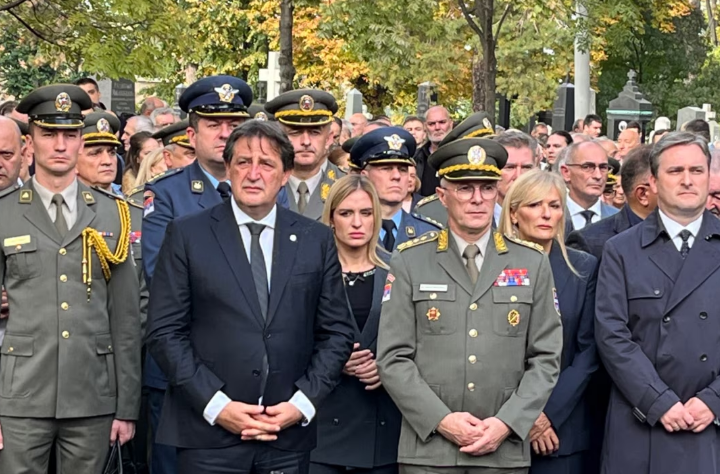 State Honours in Belgrade for a War Criminal
State Honours in Belgrade for a War Criminal  Ukraine and Sweden sign a long-term deal for up to 150 Gripen fighter jets for Kyiv
Ukraine and Sweden sign a long-term deal for up to 150 Gripen fighter jets for Kyiv  Poland detains eight over suspected Russia-linked sabotage, says PM Tusk
Poland detains eight over suspected Russia-linked sabotage, says PM Tusk 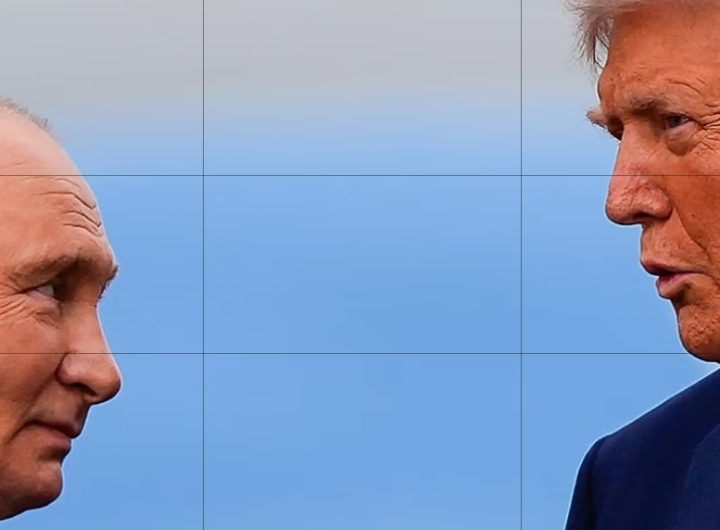 No Trump-Putin meeting in foreseeable future — this is why
No Trump-Putin meeting in foreseeable future — this is why 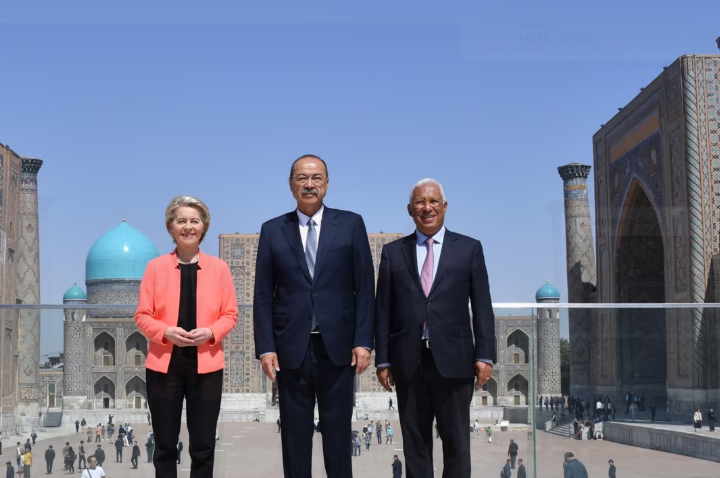 EU Readies New Trade Routes — And A Challenge To Beijing And Moscow — At Luxembourg Summit
EU Readies New Trade Routes — And A Challenge To Beijing And Moscow — At Luxembourg Summit 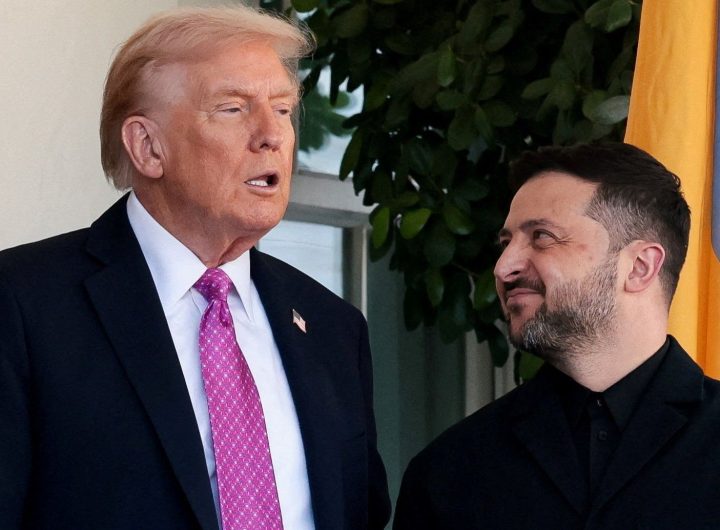 Zelensky ready to join Trump-Putin talks after ‘frank’ White House meeting
Zelensky ready to join Trump-Putin talks after ‘frank’ White House meeting